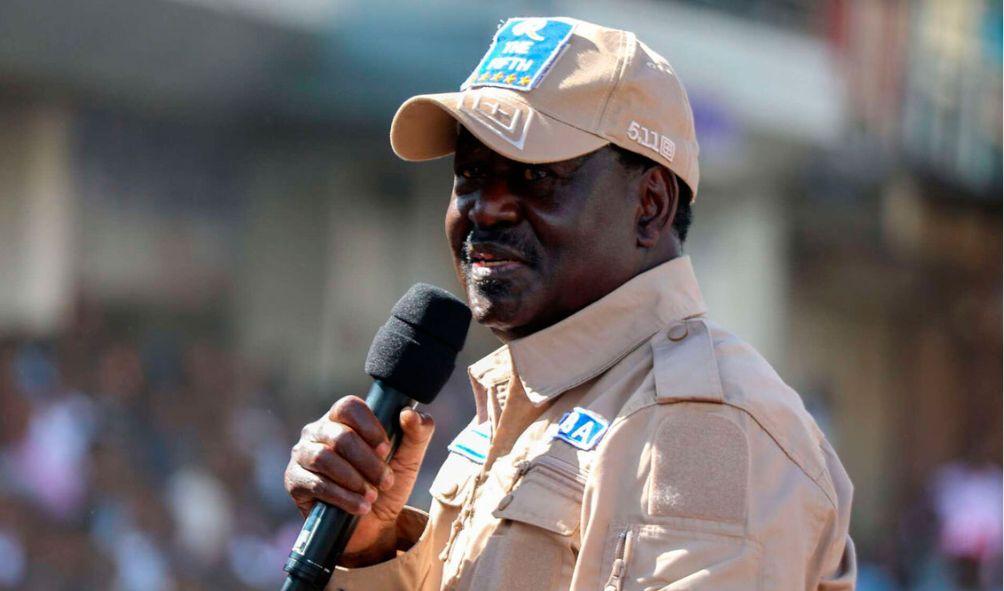MP Proposes Law Change to Restrict Raila and Protests
On Tuesday, May 2, Member of Parliament for Mbeere North, Ruku Geoffrey Kiringa, revealed the specifics of a bill he is sponsoring in the National Assembly to redefine how demonstrations will be conducted in Kenya.
Ruku stated that the bill that will be presented to the house for debate will include a list of protest types, nature, and methods of protesting.
The representative for Mbeere North desires that the police be given more authority to deal with those who violate the Public Order Act, particularly the leaders of such demonstrations.
“I am forwarding the Maandamano Bill to the Speaker of the National Assembly this morning. A bill that, if passed, will regulate the conduct of demonstrations in this country,” Ruku said.
During an encounter between anti-riot police officers and protesters on Tuesday, May 2, 2023, a passenger bus caught fire.
He explained that Kenya would have to adopt mechanisms. Employed by other developed nations to establish peace and harmony in the country.
ALSO READ: Sabina Chege to Succeed Uhuru as Jubilee Party Leader
“In the majority of developed nations, people demonstrate by honking in traffic, while others simply whistle; these are the types of peaceful demonstrations we are referring to.
Ruku stated, “From what we have seen in the past, we know that demonstrations in this country are never peaceful; they are always disorderly and contain significant violent elements.”
The Maandamano Bill will ensure that protests continue to be an effective means. For individuals and groups to raise awareness. About significant issues and advocate for change without resorting to violence that results in death and wanton destruction of property.
Ruku stated that dissatisfied individuals must demonstrate safety and responsibly.
“Before engaging in a protest, it is essential to be aware of your legal rights and the local laws governing demonstrations. This includes being aware of the regulations regarding permits, time limits, and peaceful assembly.
“The protesters should also organize with others who support the same cause and have a definite objective in mind. Plan the protest’s route and the messages you wish to deliver. “Ensure that all protest participants are aware of the plan,” Ruku said of the bill.
The member of parliament stated that violence, vandalism, and other destructive actions can undermine the protest’s message and harm innocent people.
He advised protesters to always maintain a peaceful demeanor and to avoid confrontations with counterprotesters and law enforcement.
“Respect the rights of those who do not share your views and refrain from interfering with their daily lives. Utilize a language that is respectful and avoid personal attacks and insults.
“Protests can be unpredictable and potentially dangerous, so it is important to protect yourself and others. Ruku advised, “Wear appropriate clothing and footwear, carry a charged mobile phone, and bring any medications or first-aid supplies you may need.”
ALSO READ: Kenya Kwanza Urges Choice: Bipartisan Talks or Protests, Azimio Decides
The law will also permit members of the public to record or photograph protests to document the event and capture any instances of misconduct or violence.
The materials will be shared with authorities and news outlets to ensure accountability for those responsible.
By adhering to these guidelines, protesters can demonstrate their message safely and peacefully while still making themselves heard.
26 March, Interior Cabinet Secretary Kithure Kindiki proposed amending Article 37 of the Constitution to enact ten new laws.
“The government shall introduce subsidiary legislation to Parliament in the form of Regulations under the Public Order Act and the Statutory Instruments Act to provide for the legal circumscription of assemblies, demonstrations, pickets, and petitions,” he stated.
In the new law, Kindiki sought to establish a new procedure for notification. The responsibilities of security agencies to protect the rights of those participating in demonstrations. The demarcation of assembly zones, and the obligation of public agencies and institutions to set aside a zone for petitioners.
Kenya has a long history of political and social protests. With some of the most notable occurring during the post-election violence of 2007-2008, which claimed over a thousand lives.
In 2017, there were widespread protests in response to the contested presidential election, with opposition supporters demanding a new vote.
In 2018, there were also protests against a proposed fuel tax that was ultimately abandoned.
MP Proposes Law Change to Restrict Raila and Protests
HEY READER. PLEASE SUPPORT THIS SITE BY CLICKING ADS. DON’T FORGET TO HIT THE NOTIFICATION BELL FOR MORE UPDATES AROUND THE GLOBE.
